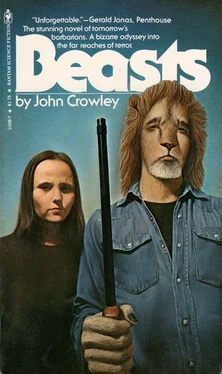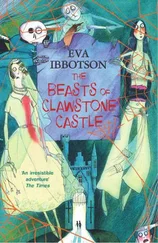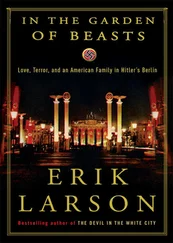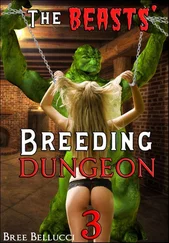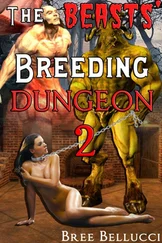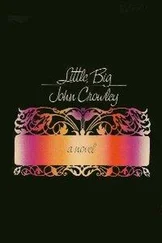They did, though, come increasingly to understand each other. Painter knew he had to find a path that led safely out of the city; he knew it was impossible for him to live in the now-naked park for long without being seen, and taken. He didn’t know that a full search hadn’t been begun only because the old building where he had been prisoner, weakened by the blast, had fallen in on itself, and, since no one seemed capable of an official decision to dig it out, he had been assumed buried beneath a ton of moldered brick and wallpapered plaster. He knew that Sweets, like him, wanted to escape the park; Sweets knew the pack only lived here on men’s sufferance and men’s neglect, and that they would eventually be hunted down and shot or imprisoned or taken away in vans, if they didn’t starve first. So it grew between them that when Painter left, the pack would follow him. Sweets laid down before Painter the burden of leadership, gratefully, and his heart with it. He had no idea what the freedom was that Painter promised, and didn’t try to envision it. Once he had taken the leo for master, all questions were for Sweets forever answered.
It was really all he had ever wanted.
The tunnel wasn’t far north of the meat-packing houses the pack had used to haunt in the early morning, snatching scraps and suet from the discard bins, till the men armed with long stinging batons came out to chase them away. Since the time one of the pack had been cornered there by men and beaten and stung to death by those sticks, they had avoided the places. But Sweets remembered the tunnel. It was a dark, open mouth closed with barricades; above it, orange lights went on and off in sequence. The city streets swept down to it from several directions between stone bulwarks and then into its maw. Sweets had never speculated about where it led or why, though once he had seen a policeman mounted on a bike go in and not come out again.
By the time winter had grown old and filthy in the city, Painter had settled on the tunnel, of all the exits Sweets and he had investigated.
His and Sweets’s breath rose whitely on the pale predawn air. Painter looked down into the tunnel from the shelter of the bulwark’s lip. A broken chain of dim yellow lights went away down its center, but they lit nothing. Painter knew no more than Sweets what was in there, but he supposed it led to the Northern Autonomy; it was anyway the passage west, to the wild lands, and that was all the freedom he needed, just now, to imagine.
Why were there no guards, as there were at the bridges? Maybe there were, at the other end. Or maybe it was one of those ancient duties that had come to be neglected, left up to signs and fierce threats: DO NOT ENTER. NO THRU TRAFFIC. VIOLATORS SUBJECT TO ARREST DETENTION RELOCATION. PROVISIONAL REGIONAL GOVT. It’s not in a leo’s nature to speculate about threats, dangers, punishment for ventures. He had tried to work out what would happen once they were all inside, but nothing came. So he only waited for the pack to gather.
They had come downtown through the night in their way, separately, yet never disattached from another’s odors and presence; they stopped to mark their way, stopped to investigate smells, food smells, rat smells, human smells. They circled downtown in a three-block quadrille. Sweets had stayed close to Painter in the vanguard, nervous over the direct, unhurried, unconcealed way he took but unwilling to be far from him. Now as the light grew he paced nervously, marked the place again, and kept his nose high for news of the others, In ones and twos and threes they assembled, all nervous at being so far from the smells of home as day broke; Duke especially was excited, his one proud ear swiveling for sounds.
Painter waited till he felt no further reluctance in Sweets to go (he’d never counted the pack or learned them all; only Sweets knew if they were all present) and then went down onto the tunnel approach, walking steadily through the yellow slush. The pack swarmed down behind him, staying close together now, not liking the tunnel but preferring its darkness to the exposed approach. Painter broke a place in the rotted wooden barricades; some of the pack had already slithered under, some clambered over. They were inside, moving quickly along the pale tiled wall. The clicking of the dogs’ nails and the steady sound of Painter’s boots were distinct, loud, intrusive in the silence.
The tunnel was longer than Painter had expected. lt took wide, sinuous turns, as though they walked through the interior of a vast snake; the yellow lights glinted fitfully on the undersides of its scales. He thought they must be nearing the end when they had only passed the halfway mark, and he didn’t know that at that mark — a dim white line at the river’s center — their passage touched off a sensor connected to a police shack outside the far end of the tunnel.
Sweets ran on ahead, knowing he should around some turning see the daylight at the other end, wanting to be able to take Painter to it, to hurry him to it; but at the same time he wanted to be next to him. There was the pack also; impossible to keep them from lingering, from sounding when they passed through dark stretches where the light had failed. The best spur he could give them was to run on ahead and force them to follow; and it was when he had raced a distance ahead that he first heard the bike approaching them down the tunnel.
He stood stock still, fur standing, ears back. By the time the others had caught up with him the sound was loud. No, keep on, Painter said, and went on himself, drawing Sweets after him and the pack after Sweets, Now the noise was filling up the silence. Duke passed by Sweets, trembling, his face set, his odor loud and violent. The racket filled up every ear as they came to a turning; Sweets could hear nothing but it, and Painter’s command to go on.
Around the turn the noise opened fanwise unbearably, and the black bike and its helmeted rider were bearing down on them. Whatever he had expected to find that had broken his sensor, it wasn’t this; he had come up on them too fast; he backed off, braked, his engine broke into backfiring, and he skidded toward the animals. A black Doberman was flying through the air at him.
Duke, maddened by the noise, had attacked. He should have fled; he didn’t know how. He only knew how to kill what attacked him. The noise attacked him and he leapt furiously to kill it. He struck with his mouth open as the bike twisted away like an animal in panic. Duke, the bike, and the man went down and spun in whipping circles sidewise violently into the wall. The noise was dead.
Go on, Painter said, beginning to run. Run now, don’t stop . Sweets ran, blind fury behind his eyes; he didn’t know how many of the others followed him, didn’t care, didn’t remember any longer where he ran, or why. He only knew that as he ran away a part of his being was left, caught, torn away, snared on the wreck of the bike and the broken body of Duke, brave Duke, mad Duke.
A half circle of light showed far off.
One after another, they pelted out of the tunnel, panicky; Heidi the poodle and Spike the wolfhound and Randy and the wild ones. All of them at last: leaping out, racing back within, running on away, and returning: all of them but Duke.
Painter came out, his broad chest heaving, the gun in his hand. His head snapped from side to side, looking for threats. There were none.
Sweets rushed to him, whimpering, lost now in sudden grief, entangling himself in Painter’s legs, wanting Painter to somehow absorb him, solve his pain and anger. All but Duke , he said. All but Duke . But Painter only shrieked once in impatience and kicked him from underfoot; then he started away down the empty avenue. Get on , he said. Quick, away from here. Follow . And Sweets knew that all he could do was follow, that this was all the answer he would ever have for any fear, any grief: follow . It would do.
Читать дальше
